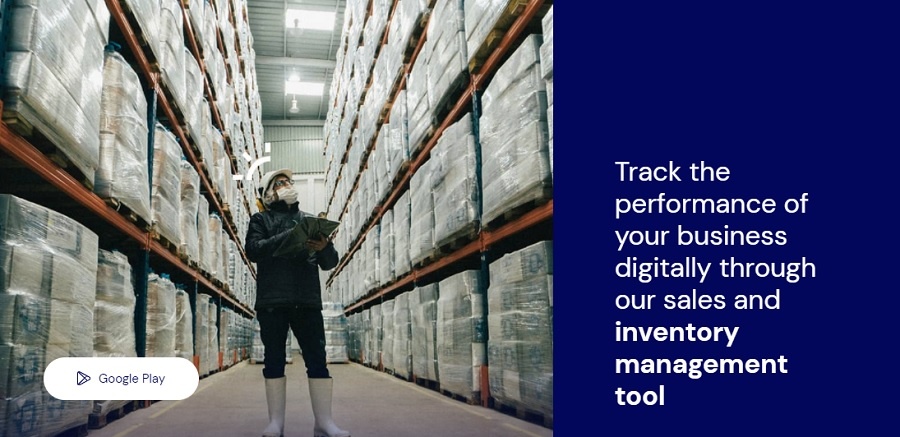The story formation of Nigerian startup Sabi, a B2B marketplace serving Africa’s informal sector, is not a common one, with the beginnings of the company traced back to another Nigerian startup – Rensource.
Rensource, which launched in 2016 and raised US$20 million in funding in 2019, is a renewable energy and merchant services company, powering the productivity of SMEs by building and operating clean energy based micro-utilities for SME clusters in the country, while offering value added services to these merchants.
Yet these value added solutions never really took off, due to lack of time, but that changed during the COVID-19 lockdown.
“During COVID-19, we had a lot more time on our hands and were able to put a pilot out with some of our tools in late Q2 2020. When the rate of growth was clear, we decided to build an entirely separate entity to take on the issue,” Anu Adasolum, until April Rensource’s COO and now CEO of Sabi, told Disrupt Africa.
“Demmy Adesina, Rensource co-founder and CEO, a few members of the team and I had already spent a lot of time ideating on what the best approaches might be well before we started, so we already had a lot of product clarity. It was more a matter of accelerating the build and execution as much as we could.”
The result was Sabi, a platform where informal merchants can connect, interact, and transact with curated B2B service providers.
“Our platform gives these merchants access to the types of services that have previously only been accessible by formal businesses. Further, Sabi enables merchants to streamline operations using our inventory management tool, business performance reports, and integrated loan services,” Adasolum said.
“Informal businesses drive the economies of many African countries, especially Nigeria. Surprisingly, despite their market influence, these businesses are far behind when it comes to efficient logistics, supply chain management, business reporting tools, and access to finance. Informal businesses resort to a patchwork approach to management and logistics that is both costly and inefficient.”
Sabi’s network aims to accomplish three things – connecting merchants with leading service operators, giving them the tools to manage and expand their businesses, and bringing these businesses online. Uptake has been immediate and impressive.
Despite being operational in Nigeria for under a year, Sabi already has over 150,000 small business users on its platform. These merchants have recorded over US$1.2 billion worth of sales via MyShop, its ERP tool, and are on track to transact over US$80 million annualised on MerchBuy, its B2B marketplace, in 2021. Sabi works with over 10,000 agents operating across Nigeria that interface with new merchants and service providers across multiple business categories including agriculture, FMCG, electronics, and financial services.
To help it grow even more quickly, Sabi recently closed a seed funding round with backing from investors including CRE Ventures, Janngo Capital, Atlantica Ventures, and Waarde Capital. The startup will use the funding to continue to grow its network across Nigeria, bringing on new merchants and service providers. The company recently established partnerships that will allow it to expand its financial services offerings to include savings accounts and other complementary risk-mitigating financial products. International growth is also on the agenda.
“The problems we are solving for informal businesses in Nigeria are present in almost every African country, and in many emerging markets. We do plan on expanding – it’s important to us to help create ease for as many businesses as we can,” said Adasolum.
It is certainly doing pretty well at that so far. In fact, the speed of its growth has actually become Sabi’s biggest challenge.
“We’re privileged in the nature of issues we’ve had – the biggest one is ensuring the rate of growth doesn’t break the business. Scaling our processes, systems, and team in line with demand is a constant design and implementation challenge,” said Adasolum.
“Operationally, we are asset-light and generally try to be as lean and efficient as possible. Maintaining that versus ensuring good user experiences as we grow is a continuous dance.”


